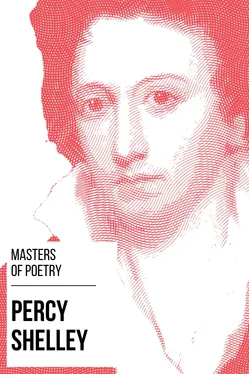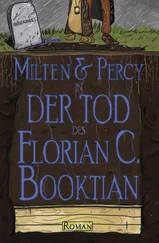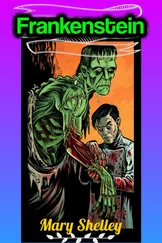What, then, under this presentation of the case, remains to be said for that ideal character which those who love Shelley believe to have been his possession? That, beginning life with a theory which left every desire and impulse free course, which imposed no restrictions except those of his own honor and self-respect, which acknowledged no command not proceeding from his own reason, he yet served the truth he saw with entire loyalty and sincerity of heart; that, making many errors throughout a darkened life, he did not strive by lightness of heart or logical sophistication to avoid their penalties of misery and remorse, but kept them in memory and bore his burden of sorrow courageously; that by intense thought and bitter experience he came at last to find the laws of life and to obey them. He found how impossible it is for the individual to solve the problems put before him, so that he himself grew content to leave many of these in doubt; found how ignorant it was in him to make his own experience the measure of the conditions of general human life, and attempt to reform the world's motives and standards by reference to that experience alone; found how little the individual counts for in life, so that the youth, who with fervid hope took up the regeneration of a whole nation in confidence, came to doubt whether it was worth while for him to write at all, and rated himself far below his friend Byron. These characteristics are the evidence of his strength, sincerity, and rightness of purpose; and through these he worked out an ideal of life and rule of living, which differed much from those of his early days. No ideal intrinsically more powerful in influence or more exalted in virtue has been worked out by men who, like himself, found the old familiar standards rationally inadequate and morally weak. These are the essential elements in Shelley's career, and to them his personal qualities and his daily life give form and color. This, too, is the work of a man framed for self-destruction, against whom circumstances did their worst throughout. The marvel is, not that his life was so broken in private happiness, and his public work so unequal in the worth of its results, but, taking all into account, that he saved so much of his life and work through his perception of the valuable objects of living, and his clinging to them.
This, too, was the result of the imperfect years of preparation. He had given him only the traditional thirty years which belong to every genius for trial and training before the finished work can be required. He had just recognized the conditions to which he must conform, and was only ready to begin when he died.
It is impossible to condense Shelley's Life in a clear way. One turns the pages, and owns for the thousandth time the fascination of Shelley, from the first glimpse of the boy, pressing his face against the window-pane to kiss his sister, to the hot July afternoon when he made his last embarkation, and the summer storm swept the gleaming mountains from his sight; but no art transmits the spell, and the story, clasped between these periods, must be left in its integrity. Shelley lived in solitude, and died before he was thirty years old; but his career involved such variety of scenes, persons, and incidents, was so thick-strewn with interesting episodes, and contained so many perplexed passages, that it is a study by itself, and requires for its mastery an acquaintance with an extensive literature of its own. It were useless to attempt a criticism, or to describe Shelley anew, but some unstudied remarks upon his fortunes in life may be ventured upon.
Must one incur the charge of being supercilious and aristocratic if he acknowledges at once a feeling, after reading Shelley's life, of having been in very disagreeable company? Assuredly no one can rise from the perusal with a heightened respect for human nature, apart from Shelley. He was born a gentleman; his innate courtesy clothes him with attractiveness, and distinguishes him among his associates as a person of a different kind from them, in his actions and bearing; and the deference which Byron showed to him, it is not unlikely, sprang from a perception of this strain of breeding in him rather than from appreciation of his genius or his nature. In his earliest fellowship with school-friends, for whom he had a kindly regard at Eton and after they went down together to Oxford, though Hogg plainly obscures it, there is a gleam here and there of natural and equal companionship; but this morning ray soon dies out. He was, afterwards, almost uniformly unfortunate in his acquaintances. His life was truly one long and sorrowful disillusion; and in it not the least part was the discovery of how he had been deceived in his judgment of persons.
Hogg was his first example. Shelley became familiar with him at Oxford, and, not content with having him for a bosom friend, wished to make him his brother-in-law. At that time Shelley was in the first crude ferment of his intellectual life, eagerly absorbing the new knowledge which came to him from his indiscriminate reading, and disputing on all the usual topics with vehement and unwearied earnestness, insatiable curiosity, and the delight of a youth who has just made the discovery that he has a mind of his own. His thoughts and letters were mostly polemical; ideal elements of morality were growing up in him, and radical views of conduct getting a hold in his convictions. He was willful, precipitate, and heedless through inexperience; he was thrown the more upon himself, and given a violent turn toward rebellion, to which he was prone enough, by his expulsion from Oxford, and the senseless attempt of his family to make him suppress his mental and moral life by denying his first dear conclusions. In this state, partly from adventure and restlessness, perhaps, but also from a sense of obligation, the desire to spread his gospel, and by the mere favor of circumstances, he married his first wife, though he knew that his sympathies were more engaged than his heart.
At Edinburgh, whither the pair had gone, Hogg joined them, and with him they returned to York, where Shelley left his wife in his friend's care during a brief necessary absence. Hogg, who appears to have been not so pure as might be wished in his university days, tried to seduce her; and when Shelley came back he learned the facts. He loved Hogg; he was ashamed, he wrote, to tell him how much he loved him; he was grateful to him for having stood by him and shared his expulsion from the college; and he placed the most extravagant estimate upon his abilities. What followed upon the disclosure Shelley himself tells in a letter written at the time:—
"We walked to the fields beyond York. I desired to know fully the account of this affair. I heard it from him , and I believe he was sincere. All I can recollect of that terrible day was that I pardoned him,—fully, freely pardoned him; that I would still be a friend to him, and hoped soon to convince him how lovely virtue was; that his crime, not himself, was the object of my detestation; that I value a human being not for what it has been, but for what it is; that I hoped the time would come when he would regard his horrible error with as much disgust as I did. He said little; he was pale, terror-struck, remorseful."
One may smile at this episode, if he be cynical, and has left youth far enough behind; but for all that, there is something pathetic in these sentences of boyish goodness, this simple belief in the moral principles which Shelley had found in his first search, and to which he had given the allegiance of his unworn heart; and in this scene of forgiveness, still confused with the emotions of first friendship betrayed, one perceives the Shelley we know, though he was not yet out of his teens. Some time elapsed before Shelley realized all the incident meant; then he wrote, "I leave him to his fate;" and when they met again in London, the old footing was gone forever.
Читать дальше












